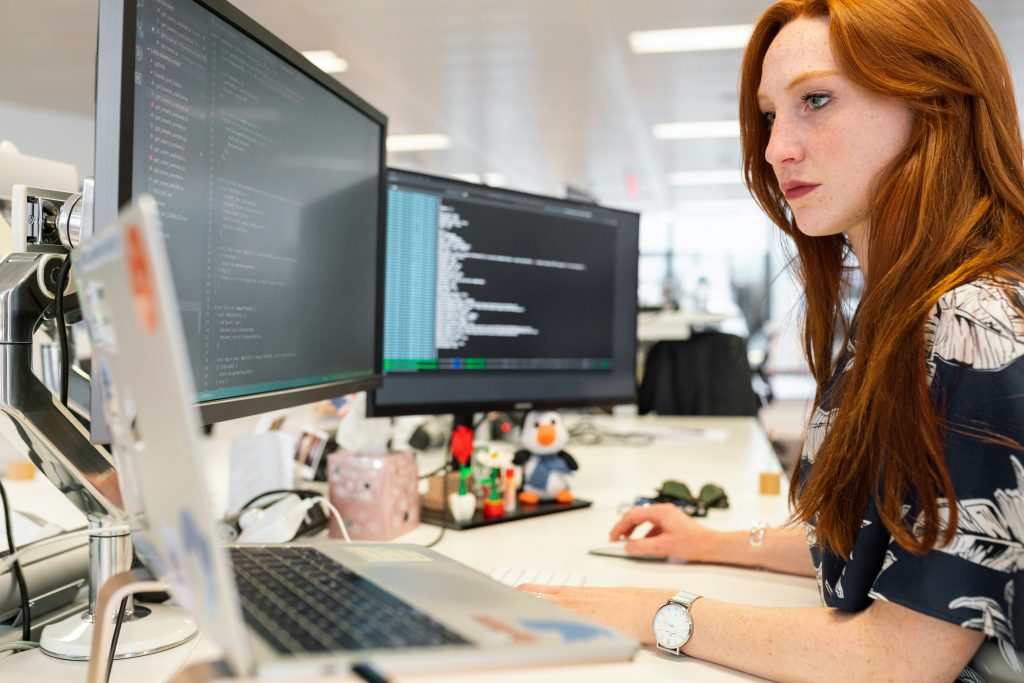The Evolving Landscape of Software Engineering
Software engineering, a discipline that once relied heavily on manual coding and time-intensive processes, has undergone a significant transformation over the years. The rapid advancement of technology has reshaped the industry, bringing forth innovative tools and methodologies that enhance productivity and accelerate development cycles. As software engineers continue to navigate this dynamic environment, the integration of artificial intelligence (AI) into software development practices has emerged as a pivotal trend.
Initially, software development was characterized by long development cycles, high levels of manual intervention, and varying degrees of automation. However, with the advent of new programming languages, frameworks, and integrated development environments (IDEs), the software engineering process has become more efficient. The introduction of agile methodologies further revolutionized the field, allowing teams to iterate rapidly and respond better to changing requirements.
In recent years, the rise of AI technologies has raised intriguing questions about the future of software engineering. AI tools can automate repetitive tasks, identify bugs, and even generate code, providing a level of efficiency that was previously unattainable. Companies are increasingly adopting machine learning algorithms and neural networks to optimize processes, enhance user experiences, and facilitate data-driven decision-making. This raises a critical consideration: as AI continues to evolve, how does its role compare to that of human talent in software development?
The juxtaposition of AI and human engineers presents both opportunities and challenges. While AI can enhance productivity and support more complex tasks, the irreplaceable qualities that human talent brings—such as creativity, problem-solving capabilities, and contextual understanding—remain significant. This ongoing dialogue highlights the necessity to evaluate the balance between harnessing advanced technologies and retaining skilled professionals in crafting innovative software solutions.
The Role of AI in Software Engineering
Artificial intelligence (AI) has become an increasingly influential force in the field of software engineering, offering tools and technologies that enhance productivity and streamline various processes. One of the notable applications of AI is in the realm of coding, where machine learning algorithms can assist developers by automating mundane tasks. For instance, code completion tools like GitHub Copilot utilize AI to generate context-aware code snippets, enabling software engineers to write code faster and with fewer errors.
In addition to coding, AI significantly impacts the testing phase of software engineering. Automated testing frameworks that leverage AI can intelligently identify areas of the code that require attention, thereby optimizing the testing process and ensuring higher quality software. Tools such as Test.ai apply machine learning to enhance test coverage and effectiveness, which ultimately leads to more reliable applications. This automation of testing not only reduces human intervention but also diminishes the time required for software deployment.
Debugging is another critical area where AI can contribute substantially. AI-driven debugging tools can analyze code patterns and predict potential issues before they become significant problems. Furthermore, by identifying the root causes of bugs faster than traditional methods, these tools enhance the efficiency of the development cycle. Project management tools exemplifying AI capabilities can also help software teams better allocate resources, predict project timelines, and enhance collaboration. Utilizing predictive analytics, these tools provide insights that guide project planning and execution.
In conclusion, the integration of AI in software engineering offers significant advantages across coding, testing, debugging, and project management. By automating routine tasks and providing valuable insights, AI not only bolsters individual developer productivity but also enhances the overall efficiency of software development processes. As AI technologies continue to evolve, their role in the software engineering landscape will become increasingly paramount, shaping the future of the industry.
Human Talent in Software Development: Why It Still Matters
In the rapidly evolving domain of software engineering, the role of human talent continues to be indispensable. While artificial intelligence (AI) has made significant strides in automating various tasks, it is the inherent qualities possessed by human software engineers that remain irreplaceable. Creativity stands out as a key attribute that AI, despite its advanced algorithms, struggles to replicate. Human developers are capable of thinking outside the box, coming up with innovative solutions, and addressing unique challenges that machine learning models may not predict or understand.
Additionally, the problem-solving skills of human engineers play a critical role in the software development lifecycle. They can assess a project’s complexities, analyze requirements, and adapt to unforeseen issues by applying their expertise and critical thinking. This ability to re-evaluate and modify approaches in real-time adds a layer of flexibility that AI typically lacks, as it operates based on existing data and predefined parameters. The intricacies of software development often require a nuanced understanding of user needs and preferences, an area where human insight excels.
Moreover, emotional intelligence is another domain where human developers significantly contribute. The capability to collaborate effectively, empathize with team members, and understand stakeholder requirements is crucial for successful project execution. Human oversight ensures that communication flows smoothly, fostering teamwork and cultivating a constructive environment for creativity. This collaborative spirit promotes not only improved productivity but also higher quality outputs, critical for meeting the demands of today’s dynamic software landscape.
Ultimately, while AI can assist in various aspects of software engineering, it cannot replace the instincts, creativity, and emotional insights that human talent brings to the table. As such, the integration of human developers in software projects remains essential, ensuring innovation and adaptability amid technological advancements.
Companies’ Perspectives: AI vs Human Talent
The integration of artificial intelligence (AI) within software engineering teams has garnered attention from various industries, prompting leaders to assess its potential impact on their workforce. Many companies are exploring how AI can complement human talent in software development, leading to enhanced productivity and innovation. Industry leaders recognize that while AI can automate tasks and streamline processes, the human touch remains essential in areas requiring creativity, critical thinking, and emotional intelligence.
A survey conducted by a leading tech consortium revealed that 65% of companies maintain a preference for a balanced approach, favoring a hybrid model that combines AI capabilities with human expertise. Executives in this survey emphasized that while AI excels in data analysis and repetitive tasks, human software engineers bring invaluable skills in problem-solving and end-user interaction. This collaboration allows organizations to harness the strengths of both AI and human talent, creating a more efficient workflow.
<pfurthermore, a=”” ai=”” ai-driven=”” and=”” as=”” assist=”” assistants=”” but=”” coding=”” companies=”” complex=”” crucial=”” developers=”” development=”” driving=”” efforts,=”” engineering=”” enhance=”” ensuring=”” environments.<=”” final=”” for=”” in=”” increasingly=”” innovation=”” instance,=”” integrated=”” interviews=”” is=”” leaders=”” networks,=”” outputs,=”” oversee=”” p=”” particularly=”” perceived=”” products.=”” professionals=”” project=”” quality=”” rather=”” refine=”” replace=”” retain=”” showcase=”” skilled=”” software=”” synergy=”” than=”” the=”” them.=”” they=”” this=”” to=”” tools=”” towards=”” trend=”” utilize=”” where=”” with=””>
The Hybrid Model: Where AI and Human Talent Meet
The evolution of software engineering is increasingly characterized by the integration of artificial intelligence (AI) alongside human talent, resulting in a hybrid workforce that blends the strengths of both. This collaborative approach leverages advanced AI tools to augment the skills of engineers, enhancing productivity and creativity while maintaining the invaluable insights provided by human intuition and expertise. The synergy between AI and human capabilities fosters an environment where complex problem-solving and innovative solutions can thrive.
In practice, workflows benefit significantly from this hybrid model. For instance, AI can handle repetitive and time-consuming tasks, freeing up human engineers to focus on strategic planning and intricate coding challenges. Automated testing and deployment tools can quickly identify errors and optimize code, reducing the burden on engineers. This means that human talent can be channeled into areas that require critical thinking, design, and direct interaction with stakeholders, ultimately delivering a higher quality of software in a more efficient manner.
Furthermore, collaboration between AI systems and engineers can lead to enhanced decision-making processes. With the ability to process vast amounts of data at unprecedented speeds, AI tools can provide valuable insights and forecasts that assist human developers in anticipating user needs and market trends. This results in software that is not only functionally superior but also better aligned with user expectations. By establishing workflows that embrace both AI technologies and human proficiency, companies can foster a dynamic environment that encourages continuous learning and adaptation.
Ultimately, the integration of AI within software engineering does not signal the replacement of human talent; instead, it marks a shift towards collaboration, with both AI and engineers contributing their unique strengths. By nurturing this hybrid model, organizations stand to gain a significant competitive advantage, producing innovative, high-quality software solutions that meet the evolving demands of the marketplace.
Challenges and Limitations of AI in Software Engineering
The integration of artificial intelligence (AI) into software engineering brings both opportunities and challenges. One of the primary concerns is the presence of biases within AI algorithms. These biases can stem from the data sets used to train AI systems, which may not represent diverse scenarios adequately. Consequently, biased algorithms can lead to unfair or inaccurate outcomes in software applications, highlighting the critical need for more inclusive training data and evaluation processes.
Another significant challenge is the necessity of human supervision. While AI can automate various tasks and improve efficiency, it is not infallible. Human expertise remains essential to oversee AI systems, particularly in critical areas where interpretation and ethical considerations are paramount. Software engineers must ensure that AI tools align with organizational goals and ethical standards, which can complicate the development process and necessitate ongoing training.
Beyond operational concerns, the risk of job displacement for skilled workers presents a stark reality in the adoption of AI within the software development landscape. As AI technologies evolve, there is an apprehension that automation may replace certain roles, particularly those involving repetitive tasks or routine coding. This fear leads to both anxiety among professionals and significant discussions about the future workforce in software engineering. It raises essential questions regarding re-skilling and adapting to a labor market increasingly influenced by technology. While AI has the potential to complement human talent, the balance between leveraging automation and preserving valuable human skills is a delicate one.
These challenges underscore the importance of a thoughtfully integrated approach to AI in software engineering. As companies navigate these complexities, understanding the limitations of AI systems is crucial in fostering a future where both AI innovations and human talent can coexist and thrive in the development landscape.
Essential Skills for Software Engineers in an AI-Driven Future
As the realm of software engineering evolves, propelled by advancements in artificial intelligence (AI), the skill set required for future software engineers is undergoing significant transformation. To remain relevant and competitive in an increasingly automated landscape, engineers must cultivate a blend of technical prowess and interpersonal competencies. One of the foremost technical skills is AI literacy. Understanding the foundations of AI, machine learning algorithms, and data analysis techniques is paramount for software engineers. This knowledge not only enables them to collaborate effectively with AI tools but also empowers them to develop innovative solutions that integrate AI capabilities.
Furthermore, proficiency in programming languages such as Python, which is widely used in AI development, adds a robust layer of expertise. Engineers must also familiarize themselves with frameworks and libraries that facilitate AI projects. Additionally, knowledge of cloud computing platforms, such as AWS or Azure, is increasingly valuable, as they provide the infrastructure necessary for deploying AI solutions at scale. Beyond technical abilities, soft skills are equally important in an AI-driven landscape. Adaptability, for instance, plays a crucial role, as engineers must swiftly integrate new tools and methodologies in their workflows. The ability to learn continuously and embrace change will ensure that software engineers remain effective contributors in dynamic environments.
Effective communication skills are essential as well, enabling engineers to articulate complex ideas clearly to both technical and non-technical stakeholders. This skill fosters collaboration across multidisciplinary teams, which often include AI specialists, product managers, and business analysts. Ultimately, the intersection of technical expertise and soft skills will dictate the success of software engineers in navigating the challenges and opportunities presented by AI technologies. Preparing for this future requires a proactive approach to skill development, ensuring that engineers are well-equipped to harness the benefits of AI while maintaining their relevance in the workforce.
Case Studies: Companies Leading the Charge
In the evolving landscape of software engineering, several companies have made significant strides by integrating artificial intelligence into their processes. These case studies not only highlight the practical applications of AI technologies but also demonstrate the results achieved and the lessons learned from these implementations.
One notable example is Google, which has harnessed AI through its AutoML project, allowing software engineers to automate the creation of machine learning models. This initiative reduces development time significantly and enables teams to experiment with more complex models than before. The automatic generation of custom model architectures has not only enhanced the speed of innovation but has also allowed Google to maintain a competitive edge in various markets, showcasing how AI can complement human talent in software engineering.
Another compelling case comes from Microsoft, which introduced AI-driven tools in their Azure DevOps services. By integrating machine learning algorithms into their software development lifecycle, they have streamlined tasks such as code reviews and bug detection. The outcomes have been impressive; Microsoft reported a substantial reduction in time spent on manual processes, alongside a marked improvement in code quality. Their experience suggests that AI can serve as a valuable partner for engineers, helping to improve productivity while allowing human developers to focus on more complex and creative aspects of software design.
Furthermore, Netflix employs AI to optimize its user experience through content recommendation algorithms. By analyzing vast amounts of user data, Netflix’s AI system personalizes content suggestions, enhancing viewer satisfaction and engagement. This AI application demonstrates that the successful integration of AI can drive business value while also addressing user needs effectively, proving that the future of software engineering lies in the synergistic relationship between AI technologies and human ingenuity.
These case studies clearly illustrate that companies are not merely adopting AI technologies; they are strategically embedding them into their workflows. This integration paves the way for improved efficiency, higher quality products, and a redefined role for software engineers. The lessons learned from these pioneering organizations can provide invaluable insights for others looking to leverage AI in software development.
The Path Forward for Software Engineering
As we navigate the evolving landscape of software engineering, it is evident that both artificial intelligence (AI) and human talent will play crucial roles in shaping the industry’s future. While AI offers remarkable efficiencies, predictive analytics, and data-driven insights, the irreplaceable qualities of human intellect—including creativity, empathy, and ethical reasoning—are equally vital. Companies must strive to find an optimal balance that leverages the strengths of both AI technologies and human engineers.
The integration of AI in software development processes can enhance productivity, reduce the time required for repetitive tasks, and increase overall software quality. However, entirely relying on algorithms and automated systems may lead to a significant loss of the nuanced understanding required for nuanced problem-solving. Thus, organizations should approach AI adoption with a clear strategy that prioritizes collaboration between machines and humans, fostering an ecosystem where both can thrive.
Moreover, ongoing education and training for software engineers will be paramount. Professionals in the field must adapt to new technologies and methodologies, ensuring they possess the skills necessary for an increasingly AI-augmented environment. Emphasizing continuous learning will not only equip engineers with the expertise to work alongside AI tools but also inspire innovative solutions powered by human ingenuity.
Looking ahead, it is clear that the future of software engineering will likely feature a hybrid model, where AI serves as an enabler rather than a replacement. Encouraging proactive discussions among industry stakeholders will be essential to understand the implications of these advancements—be they ethical, technical, or social. The objective should be to cultivate an industry perspective that recognizes the formidable potential of AI while preserving and valuing the human element that remains integral to software engineering’s essence.
</pfurthermore,>



